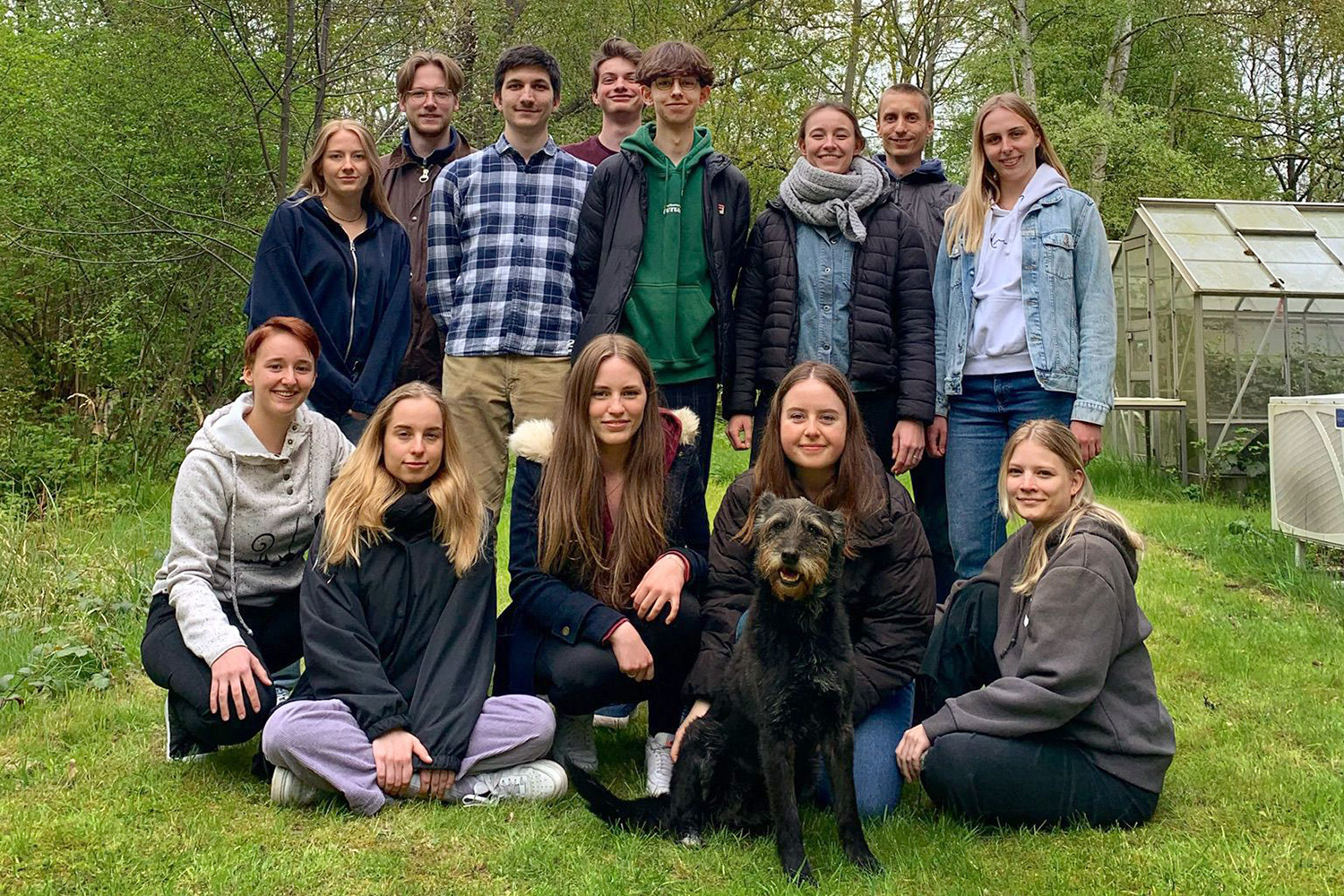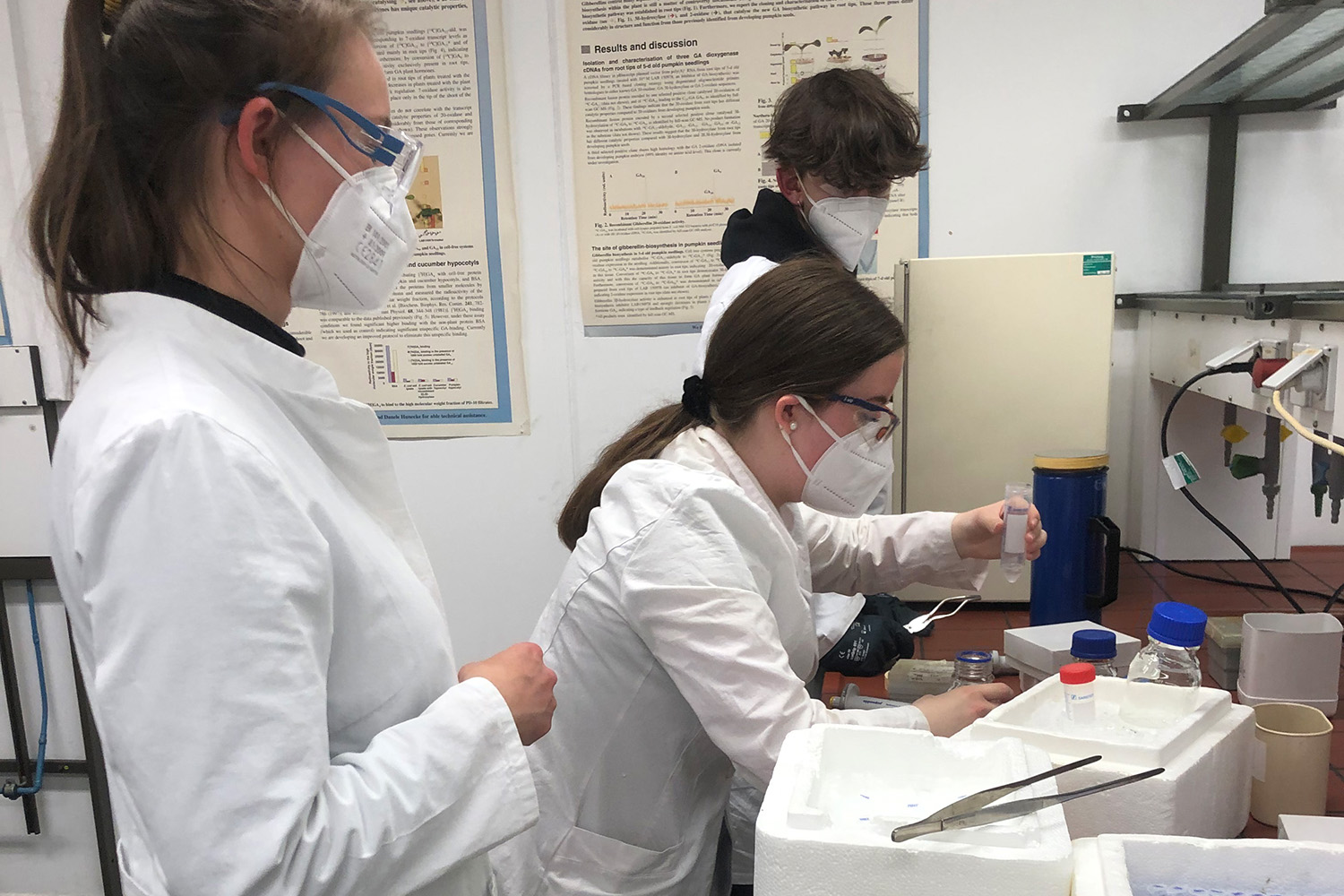No limits set Junior researchers from Braunschweig take part in international competition on synthetic biology
The iGEM Foundation is an independent, non-profit organisation dedicated to the advancement of synthetic biology. The Foundation has been organising an annual competition on innovation in synthetic biology since 2004. Particular emphasis is placed on international contact with other teams, but also on interdisciplinary skills. Students in Braunschweig have also found a way to participate as a team. Here they introduce themselves.

The iGEM-Team 2022. Photo credit: iGEM-Team TU Braunschweig
“We are twelve TU Braunschweig students from life sciences. Each of us has a specific task. While some of us work on the social media presence, for example, others take care of sponsoring and the website,” says Fabienne Spang.
The incentive to found the team came from Professor Boas Pucker from the Institute of Plant Biology. In an information event at the end of 2021, he pitched the competition to the students. As a team, they have since been working on a self-amplifying signal consisting of three components: a detection component, a reporter component and an amplification component. The aim of this system is to detect very small amounts of an antigen. And this is how the students want to score points in the competition: Firstly, the signal amplifies itself, which means that even small amounts of an antigen can be detected. “In addition, the system is being developed in such a way that any antigen can be detected by replacing only one component,” says Spang.
Rapid antigen tests are relevant in both medicine and research and play an essential role in the study and elucidation of various diseases, for example in the early detection of tumours. “With our modular system, not only can low antigen concentrations be detected at an early stage, but by exchanging the recognition domain, rapid and efficient detection of a wide variety of antigens is possible.”
In weekly team meetings, the bachelor’s and master’s students exchange information about the respective steps in their individual tasks. Professor Pucker has provided them with two laboratories for their laboratory work. But the teamwork is not limited to the project. They also like to spend the occasional weekend together, working on their topic and cooking together. They are all confident that they will be able to present the project to teams and researchers from all over the world at the Grand Jamboree in Paris in October 2022.
The junior researchers are excited that their system can help prevent people from getting sick or reacting in different ways to different antigens. “In general, we think it’s great that we, as a new generation of researchers, are already learning to solve questions independently during our studies, to do research on our own and also to accept mistakes. This enables us to approach problems better later on and to deal with setbacks,” says Fabienne Spang.
The team’s participation is supported by TU Braunschweig, the Ecki Wohlgehagen Stiftung, the Bürgerstiftung Braunschweig, and numerous companies.

